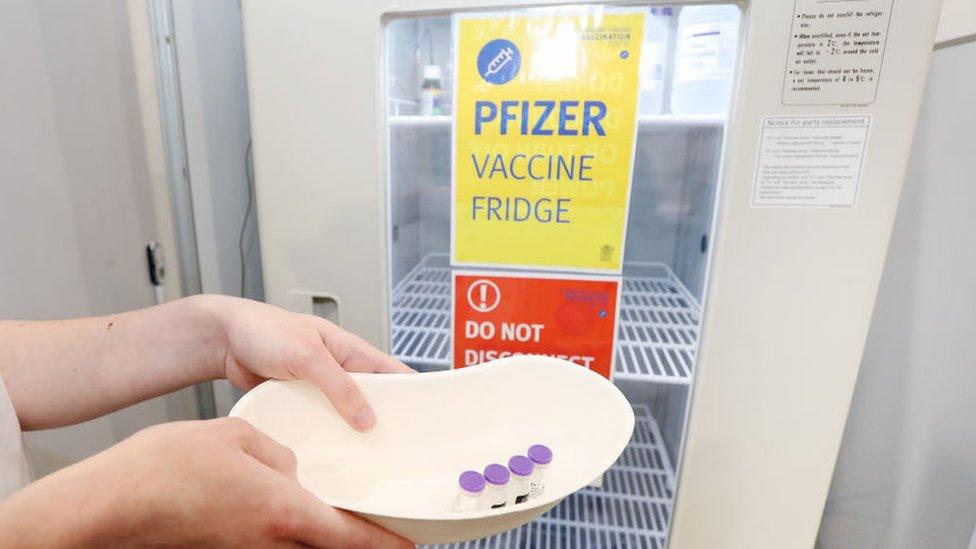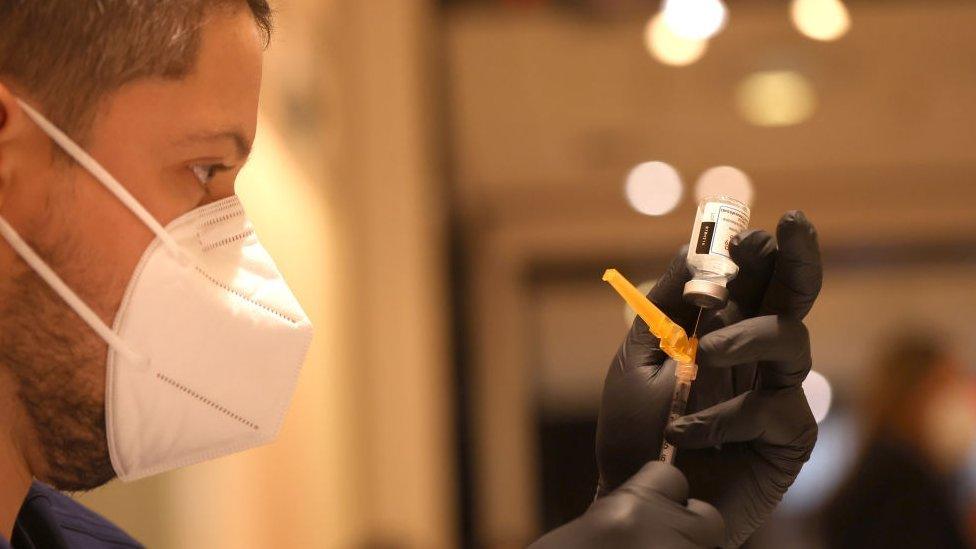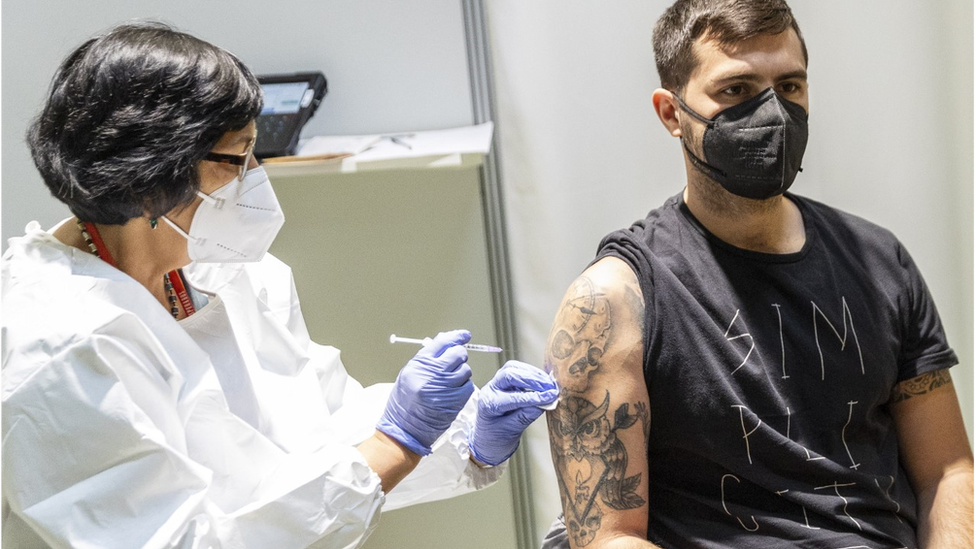Pfizer will not sell drugs for profit in poor nations
- Published

US drugs giant Pfizer has said it will no longer make a profit from selling its patented medicines to 45 of the world's low-income countries.
Pfizer said the plan includes 23 patented medicines and vaccines which treat infectious and rare inflammatory diseases and certain cancers.
It said new medicines and vaccines will also be sold at cost.
The firm has previously been criticised for making profits from its coronavirus-related vaccines.
Meanwhile, other companies, such as British firm AstraZeneca, US owned Johnson & Johnson chose to price their coronavirus vaccines at cost during the pandemic.
The pandemic has been lucrative for the company and its revenues last year doubled to $81.3bn (£65.1bn). It made almost $26bn (£21bn) in revenues in the first three months of this year partly from the coronavirus vaccine it developed with Germany's BioNTech pharmaceutical company and its pill to treat the virus.
It has faced calls from campaigners to share its drug-making technologies to help countries in the global south to manufacture their own vaccines and treatments.
Pfizer said its vaccine and anti-viral treatment for coronavirus would be included in the plan.
The firm said the move would benefit more than a billion people.
"We know there are a number of hurdles that countries have to overcome to gain access to our medicines. That is why we have initially selected five pilot countries to identify and come up with operational solutions and then share those learnings with the remaining countries," Angela Hwang, group president of the Pfizer Biopharmaceuticals Group, said.
Bill Gates, co-chair of the Bill and Melinda Gates Foundation said he hoped other firms would follow in their steps.
"We're pleased to be working with Pfizer and we're talking to the entire pharmaceutical industry about these kinds of initiatives," Mr Gates said.
The firm faced criticism during the pandemic when, unlike drugmaker AstraZeneca, it continued to sell its covid vaccines for profit.
Mr Bourla has also appealed to the World Health Organisation and other partners to help with the logistics of prescribing and distributing the drugs.
So far, Rwanda, Ghana, Malawi, Uganda and Senegal have committed to joining the company's "Accord for a Healthier World".
Malawi President Lazarus Chakwera said in a statement the agreement will allow the countries and the firm to share "the burden of costs and tasks in the production and delivery of supplies that will save millions of lives."
The president of Rwanda, Paul Kagame, also said he hoped other companies would follow Pfizer's example.
"Pfizer's commitment under the Accord programme sets a new standard in this regard, which we hope to see emulated by others."
Related topics
- Published29 April 2022

- Published17 April 2022
